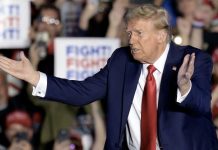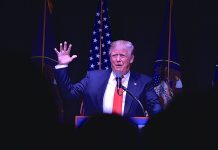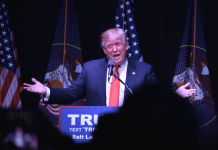
May 18 (UPI) — U.S. Secretary of State Mike Pompeo warned the Chinese government against interfering with American journalists in Hong Kong, stating doing so would force the United States to reconsider the territory’s status.
In a statement on Sunday, the United States’ top diplomat said he had recently learned of Chinese government threats “to interfere with the work of American journalists in Hong Kong.”
“These journalists are members of a free press, not propaganda cadres, and their valuable reporting informs Chinese citizens and the world,” Pompeo said in the short statement without elaborating on the nature of the threats or which media organizations were targeted. “Any decision impinging on Hong Kong’s autonomy and freedoms as guaranteed under the Sino-British Joint Declaration and the Basic Law would inevitably impact our assessment of One Country, Two Systems and the status of the territory.”
Since returning to Chinese authority from British rule in 1997, Hong Kong has functioned under this framework that affords the territory freedoms mainland China does not enjoy.
That system has been connected to ongoing protests in Hong Kong that erupted last summer over a now-shelved extradition law opponents saw as a whittling away of the territory’s rights and freedoms.
The protests recently re-erupted after a short simmering amid the coronavirus pandemic, and Pompeo told reporters early this month that the State Department delayed presenting its report to Congress on its assessment of Hong Kong’s autonomy “to allow us to account for any additional actions that Beijing may be contemplating in the run-up to the National People’s Congress that would further undermine the people of Hong Kong’s autonomy as promised by China.”
Late last year, President Donald Trump signed legislation in response to the treatment of Hong Kong protesters by Chinese authorities that requires the State Department to annually assess whether the territory’s level of autonomy from China justifies its special trade status under U.S. law.
Tensions between the two countries have climbed amid the coronavirus pandemic with Washington frequently accusing Beijing of having conducted a coverup of its initial outbreak and of not being forthcoming with the information it has about the virus. China has repeatedly denied the allegations, claiming the White House is attempting to direct attention away from its own response to the virus.
The two countries have also recently traded diplomatic blows over journalists.
In February, the State Department designated five Chinese media outlets working in the United States as foreign missions, calling them “organs of the Chinese one-party state propaganda apparatus.” The Trump administration later capped the number of Chinese nationals who could work at the designated companies.
The next month in retaliation, China expelled journalists from several U.S. news organizations and ordered certain U.S. bureaus in the Asian nation to hand over information about their staff, finances, operations and Chinese real estate.





